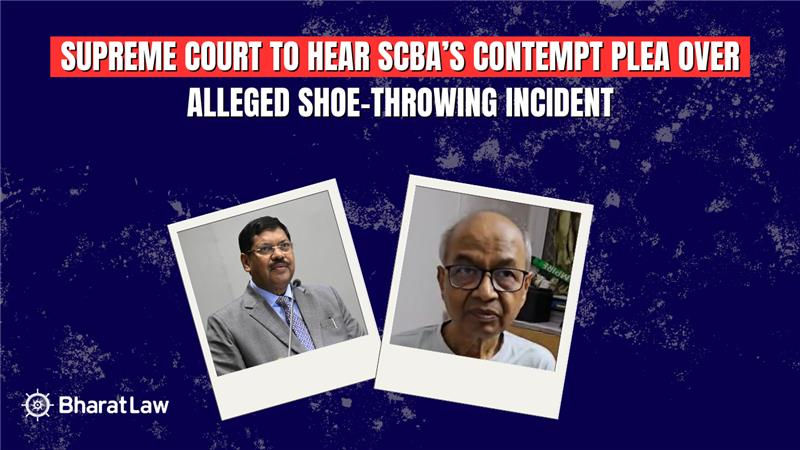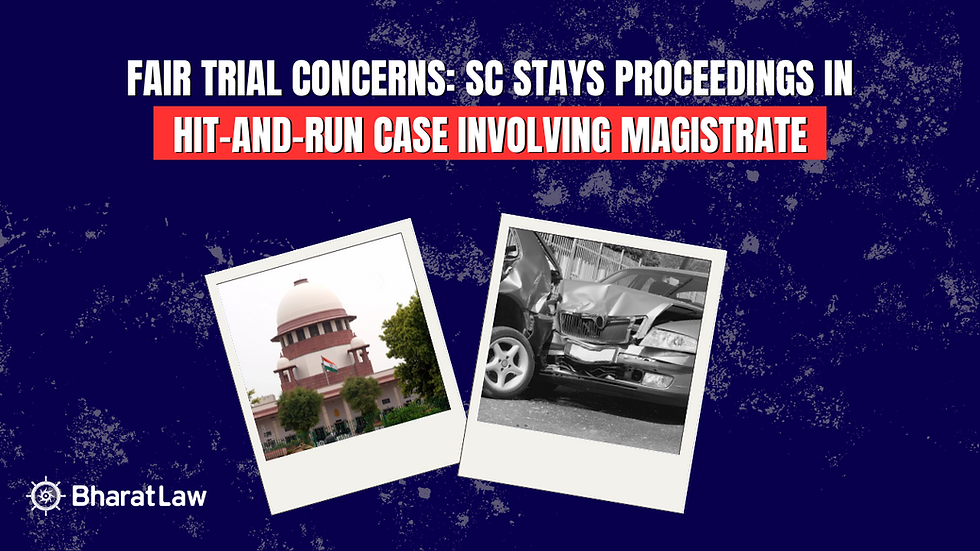Hostile Witness Testimony: 'Evidence Cannot Be Rejected in Toto' - Supreme Court Ruling in Selvamani Case
- Chintan Shah

- May 15, 2024
- 4 min read
Updated: Jul 9, 2024
Summary of the Judgment
Case Name: Selvamani vs. The State Rep. by The Inspector of Police
Date: 8th May 2024
Judges: Honorable Justice B.R. Gavai and Honorable Justice Sandeep Mehta
Advocates: For appellant: Shri Rahul Shyam Bhandari and Shri V. Krishnamurthy, learned Senior Additional Advocate General for the State of Tamil Nadu
Acts and Sections: Sections 376(2)(g) and 506(1) of the Indian Penal Code, 1860 (IPC) Section 4 of the Tamil Nadu Prevention of Women Harassment Act Section 374 and Section 164 of the Criminal Procedure Code, 1973 (CrPC)
Cited Judgments: Rai Sandeep alias Deepu v. State (NCT of Delhi) (2012) Khujji @ Surendra Tiwari v. State of Madhya Pradesh (1991) C. Muniappan and Others v. State of Tamil Nadu (2010) Vinod Kumar v. State of Punjab (2015) Rajesh Yadav and Another v. State of Uttar Pradesh (2022)
Introduction
The judgment delivered on 8th May 2024 by the Supreme Court of India in the case of Selvamani vs. The State Rep. by The Inspector of Police is a pivotal decision concerning the interpretation and application of laws related to sexual offences and the reliability of witness testimonies. The case was presided over by Honorable Justice B.R. Gavai and Honorable Justice Sandeep Mehta. This article provides an in-depth analysis of the judgment, discussing the legal principles involved and their implications for future cases.
Factual Background
The case arose from an incident that occurred on 27th January 2006, involving the gang rape of a 22-year-old woman employed at Emerald Shoe Company, Vaniyampadi. The appellant, Accused No. 2, along with four others, was implicated in the crime. Following the incident, the victim registered a First Information Report (FIR) at Police Station Vaniyampadi Town. The trial court convicted the accused under Sections 376(2)(g) and 506(1) of the IPC and Section 4 of the Tamil Nadu Prevention of Women Harassment Act, sentencing them to rigorous imprisonment.
Legal Arguments
For the Appellant: Shri Rahul Shyam Bhandari, representing the appellant, argued that the prosecution's case was flawed due to inconsistencies in the testimonies of the victim (PW-1) and her relatives (PW-2 and PW-3). He cited the judgment in Rai Sandeep alias Deepu v. State (NCT of Delhi), asserting that when the evidence of the prosecutrix and medical evidence do not corroborate, the conviction cannot stand.
For the Respondent: Shri V. Krishnamurthy, representing the State, contended that the testimonies of the prosecutrix and her relatives were consistent and corroborated by medical evidence. He emphasized that the initial statements given by the victim were reliable and that the later contradictions were influenced by external pressures.
Key Findings
Hostile Witnesses: The Court scrutinized the issue of witnesses turning hostile. In their examination-in-chief, the victim and her relatives provided detailed accounts of the crime. However, during cross-examination, they retracted their statements, which raised questions about the reliability of their testimonies.
The Court referred to several precedents, including Khujji @ Surendra Tiwari v. State of Madhya Pradesh and C. Muniappan and Others v. State of Tamil Nadu, which established that the testimony of a hostile witness could not be discarded entirely. The Court noted:
"The evidence of a prosecution witness cannot be rejected in toto merely because the prosecution chose to treat him as hostile and cross-examined him. The evidence of such witnesses cannot be treated as effaced or washed off the record altogether but the same can be accepted to the extent their version is found to be dependable on a careful scrutiny thereof."
Medical Evidence: Dr. Indrani, the Medical Expert (PW-8), confirmed the presence of injuries on the victim's body consistent with forcible sexual intercourse. The medical report provided substantial corroboration to the victim's initial statement.
Delay in Cross-Examination: The Court highlighted the detrimental effect of delays in cross-examination. The significant time gap between the examination-in-chief and cross-examination allowed the witnesses to be influenced. In Vinod Kumar v. State of Punjab, the Court had previously noted the importance of timely cross-examination to maintain the integrity of witness testimonies.
Conclusion
The Supreme Court upheld the conviction and sentence of the appellant, reaffirming the importance of consistent and timely witness testimonies in criminal trials. The judgment underscores the need for trial courts to adhere to procedural mandates to ensure a fair trial for all parties involved.
Implications for Legal Professionals
This judgment has several implications for legal practitioners in India:
Reliability of Hostile Witnesses: The Court's approach to hostile witnesses provides a framework for evaluating such testimonies. Legal professionals must carefully assess the portions of a hostile witness's testimony that align with the prosecution's case.
Timely Cross-Examinations: The decision reinforces the necessity of conducting cross-examinations promptly to prevent manipulation of witnesses. Lawyers should advocate for immediate cross-examinations to uphold the integrity of the judicial process.
Corroboration by Medical Evidence: The case highlights the critical role of medical evidence in corroborating witness testimonies. Legal practitioners should ensure that medical reports are thoroughly examined and presented to support the victim's account.
Handling Witness Testimonies: The judgment serves as a reminder that minor discrepancies in witness testimonies should not overshadow the overall credibility of their statements. Lawyers must focus on the consistency of the core narrative rather than minor contradictions.
Final Thoughts
The Selvamani case serves as a crucial precedent for handling cases of sexual violence, particularly concerning the treatment of witness testimonies and the importance of corroborative evidence. Legal professionals must draw lessons from this judgment to enhance their practice and contribute to a more effective judicial process in India.



Comments